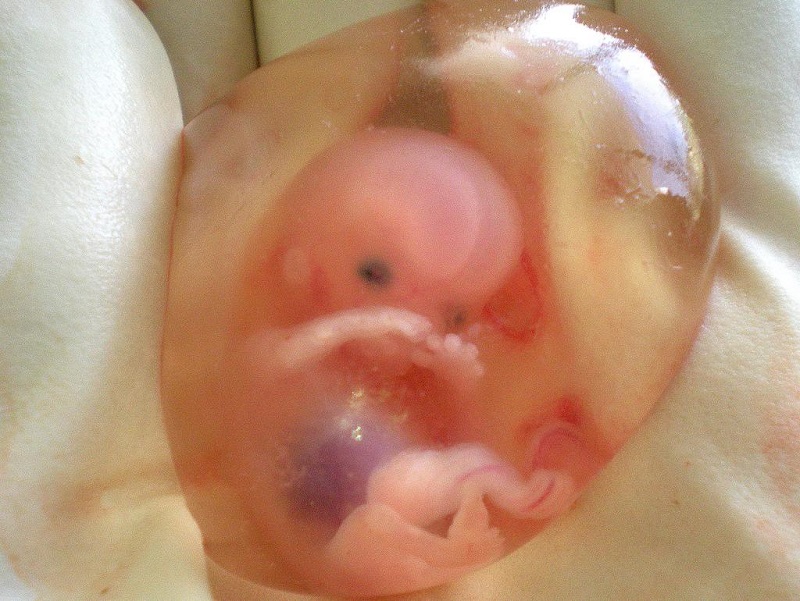The headline of the post is “People criticize pro-lifers for focusing so much on abortion. But there’s a reason we do.” Matthew Lee Anderson’s post is quite lengthy, but if you pan through all 2,566 words, you’ll find an abundance of nuggets.
I very much like his beginning, one which speaks volumes. His family did not talk about abortion, he tells us. However the idealism on display when there were occasional appeals at his church to donate diapers to the local crisis pregnancy center, deeply impressed Anderson.
That somewhat idyllic approach impressed on me the vague but definite intuition that life in the womb was worth preserving and the woman who bore it worth supporting. This impression that being pro-life means supporting the people whose wombs bear life as much as the life itself has never left me.
As he grew older, Anderson experienced, or came in contact with people who had, many life-altering difficulties, including infertility and miscarriages. A fair reading would be that all this sharpened his moral intuitions.
When he wrote this Anderson was a doctoral candidate in Christian ethics at Oxford University, so it shouldn’t surprise us that his essay plunges into depths we wouldn’t find in casual pro-life discussions. In my humble opinion, he may underplay what he calls “the hodgepodge of reasons” pro-lifers typically offer to explain their position–appeals to God, science, and “to claims about human dignity or rights.”
However, that notwithstanding, consider the next paragraph:
Yet as important as those arguments are, they are better understood as articulating a conceptual structure for intuitions and perceptions that exceed their limits — intuitions and perceptions that animate the individual outreach of most pro-life activists. The pro-life outlook is more enchanted, more infused with a secular sense of the sacred, than most of our philosophical arguments allow. Identifying that ethos, and attempting to name it, is crucial for understanding how pro-lifers think — and why they are so earnestly devoted to their cause.
Anderson’s journey to “identify that ethos” takes him in many directions: “reverential awe,” for example, about which Anderson writes extensively. Also, something we talk about occasionally but pay insufficient attention to (in Anderson’s words) is that “pro-lifers also are suffused with the sense that any of us could have suffered the same fate.”
Two other points, one I will just quote, the other I will briefly comment on. First, referring to the unborn and the medically vulnerable, Anderson writes,
“What happens at the margins of life has a peculiar significance to what goes on in the middle. Births and deaths play an exaggerated role in our self-understanding, just as beginnings and endings have an outsize influence on our appreciation of novels. At the edges of life, we see human beings in conditions that our agency as adults obscures, but which often mark significant swaths of our mature lives: dependency and need, isolation and invisibility. The pro-life investment in opposing euthanasia is motivated on the same terms as its opposition to abortion…”
Second is his conclusion.
For the pro-lifer, there is no clearer instance of the marginalized, the voiceless, and the vulnerable than in the womb — and no more profound source of wonder at the limitless possibilities that human life is capable of achieving. The early embryo looks nothing like us, has none of our capabilities, drains the mother’s resources, and often requires the mother to sacrifice many of her interests. If in these conditions one can see something worthwhile, something that can be a benefit or a blessing to the world even when unwanted, then one can start to glimpse why pro-lifers are so animated and so patient in their efforts. [My emphasis.]
Exactly. In our world the pro-life “position” is radically counter-cultural. This is one important reason it resonates more and more with young people.
Keep up with the latest pro-life news and information on Twitter. Follow @LifeNewsHQ
We give when it is inconvenient (even very inconvenient) to do so out of what Anderson calls a “hushed reverence.” We speak up for those who literally cannot speak for themselves for we see in their treatment “a microcosm for the rest of society.”
Moreover, we “cannot,” Anderson tells us “shed ourselves of the sense that there is something too powerful, something too good about the human being, to make its life or its death a matter for our choice.
“It is better for the embryo to go on existing, for it and for us and for the cosmos whose beauty new human life adorns and deepens.”
They deny, we affirm.
They discard, we embrace.
Where pro-abortionists see “clumps of cells,” mere “material from the womb,” pro-lifers see echoes of the transcendent.
They believe life is “all about me.” We believe we are here for a larger purpose than mere self-aggrandizement.
We “focus on abortion so much” because if we did otherwise, it denies who we are and Whose we are.
LifeNews.com Note: Dave Andrusko is the editor of National Right to Life News and an author and editor of several books on abortion topics. This post originally appeared in at National Right to Life News Today








